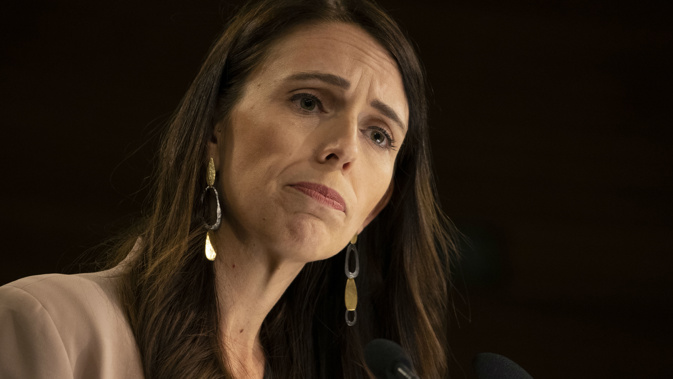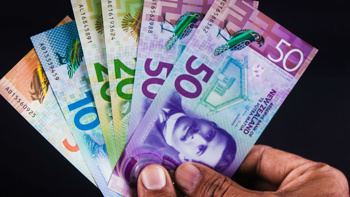
With the number of people asked to stay at home set to soar, Prime Minister Jacinda Ardern says the Government and the police can enforce self-isolation.
And she says the Government's economic package, to be announced on Tuesday, will be the most significant one-off injection into the economy of her entire tenure as Prime Minister.
Yesterday Ardern announced that any person from any country, excluding the Pacific islands, is now required to self-isolate for 14 days upon arrival to the country, and she encouraged all New Zealanders to avoid all non-essential travel overseas.
As well as affecting thousands of people's travel plans, the move is expected to significantly impact Kiwis' jobs and New Zealand economy.
This morning Ardern sought to calm fears about whether people would self-isolate properly, saying that the 10,500 New Zealanders who had done it so far had been overly compliant, with some staying home for more than 14 days.
But she said authorities, including police, had the power to quarantine people at a medical facility and station staff at the door.
That power had not been used so far, she told Q+A.
The Government has been constantly looking at global developments, and the new restrictions unveiled on Saturday were the next step to "go hard" to flatten the curve.
The goal was to avoid a large-scale community spread of the virus, and the new travel restrictions were about keeping pressure off the public health system as the number of positive cases rose.
"We will have more cases in New Zealand. We will," Ardern told Q+A.
- Coronavirus travel restrictions: What it means for you, your job
- Suspected coronavirus case on cruise ship off NZ coast
"What we're trying to do is slow the speed with which we have them."
Eighty per cent of people will have mild to moderate symptoms, and they'll stay at home and should be fine.
Hospital space needed to be saved for more severe cases.
"At the upper end, 7 per cent roughly might be much more acute," Ardern said.
She said self-isolation didn't mean you can't go outside, but you shouldn't go to public places. It "pretty much" meant you should stay at home.
That was because the virus spread via droplets, so if you are close enough to someone as they coughed, you could get infected.
People arriving at the airport were registered, and spot checks would be stepped up to ensure self-isolation compliance.
She said the economic package will be before Cabinet tomorrow and it will be announced on Tuesday.
"This will be the most significant package that I will announce while I am Prime Minister."
Ardern defended the time it had taken because it needed to benefit those most affected by Covid-19, both employers and employees. "It has to be about both."
She questioned whether singular payments would be as beneficial as targeted relief, and said targeted payments would help keep people in work.
The first estimates were a less than 1 per cent hit to the economy, but it is now much more severe: "This is moving so quickly."
The Prime Minister would not say if she expected a recession, but said the economic impact would be "significant".
She said the Government would provide guidance for mass gatherings, but she added that if an event was not ticketed, it was harder to trace people.
Advice to international travellers arriving in NZ
Ardern defended the amount of people being tested, saying that testing people at the border wouldn't be effective. Some tests could produce a false negative result, which would lead to complacency.
Those arriving at the airport should get private transport back home, rather than taxis.
Some people arriving back into New Zealand who need to take a domestic flight to get home will need to be cautious and keep their distance as much as possible, Ardern said.
The restrictions on Italy so far had seen travellers from that country reduced to a trickle, she said.
The same restrictions that have been on South Korea saw flights from that country essentially stop, she said.
By next week, 1500 people a day could get tested, and it was up to clinicians who needed to be tested, she said.
At the moment, transmission and close contacts can be traced, but community transmission will mean contact tracing will be harder.
Covid-19 has now infected more than 145,000 people around the world and six in New Zealand - and that is expected to rise.
More than 10,000 people have self-isolated in New Zealand, with the number expected to dramatically increase.
The new travel restrictions will be reviewed after 16 days.
People who have travelled outside of New Zealand in the past 14 days are also not permitted to travel to the Pacific islands, while cruise ships will be banned from entering New Zealand until the end of June.
Cargo ships and essential air freight will still be allowed to enter the country for things like pharmaceuticals.
Other restrictions — such as denying travel for anyone who shows symptoms — have been introduced.
The Government is also preparing to release a directive on public events this week. It is expected to follow the lead of other countries, which have banned gatherings of more than 500 or 1000 people.
Ardern encouraged Kiwis to "Enjoy your own backyard for a time".
Take your Radio, Podcasts and Music with you









